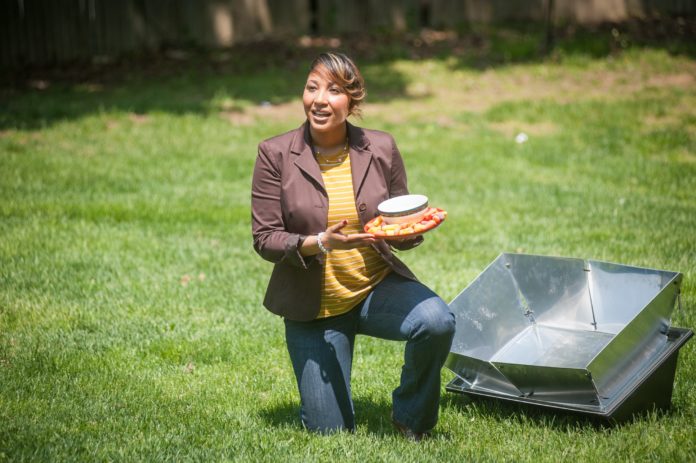
CRANSTON – Lelani S. Williams recently won Clark University’s annual Ureka Big Idea Challenge for her idea to create a woman-managed solar cooker production business in Haiti.
Williams, of Cranston, said she traveled to Haiti in May 2015 with one of her professors at Clark University to work with farmers. Her idea is a response to both gender inequality and the energy crisis in Haiti.
While in Haiti, she saw Professor Jude Fernando use a solar cooker to cook a meal.
“People really took to it,” Williams said recently.
She said she was the only student with a business background on the trip. Williams will graduate this month from Clark, where she is pursuing a dual master’s degree in business administration and community development and planning.
After the trip, she learned about the contest, through Clark’s Innovation and Entrepreneurship Department, from Fernando, and she decided to utilize the solar cooker idea. She had to pitch the idea to a panel of judges at Clark. She said participating in the contest helped her formulate her idea and craft a business plan.
Now, she is in talks with Solavore, a Minnesota company that produces solar cookers, about being a supplier. She said she will return to Haiti either in late summer or early fall to start training women.
Her idea is to import the solar cookers in parts and hire women who would assemble them in Haiti. She said her idea is not new, but the problem is that most organizations give out the cookers for free without any training.
“My goal is to create industry and jobs for women in Haiti. They also will be selling them,” Williams explained. “Within a year, I’m hoping to have incubator space within the company to train and help other women and men in different business aspects.”
She said she will need to raise more money, but the award money is a start.
According to information from Clark, deforestation in Haiti has impacted the ability to find once readily available cooking fuel sources, making a simple task such as cooking both time-consuming and dangerous.
“The solar cooker seemed like a natural fit for those living in Haiti especially because of the fuel issues and immense deforestation,” Williams said.
“It wasn’t until I heard the woman farmers say they wanted to be empowered to learn a new skill and work in an industry other than agriculture that I knew there was a space for the solar cooker in the Haitian marketplace,” she added.












